Trial of Kyle Rittenhouse charged with killing 2 protesters to start Monday
A highly sensitive trial is set to open Monday in the United States in the case of a young man accused in the shooting deaths of two people during one of the tumultuous anti-racism protests that swept the US in the summer of 2020.
Kyle Rittenhouse, who was 17 at the time, has said he wanted to help vigilante groups trying to protect the city of Kenosha, Wisconsin, following riots over a police shooting that left a Black man paralyzed.
Carrying a semiautomatic rifle, he had opened fire in confusing circumstances, killing two men, Joseph Rosenbaum and Anthony Huber, and badly wounding a third, Gaige Grosskreutz. All three were white.
Arrested not long afterward, Rittenhouse was charged with five felony counts, including first-degree homicide, before being freed on bail of $2 million.
That large sum had been quickly raised by supporters across the country, including a prominent Donald Trump backer, the pillow company executive Mike Lindell, as well as actor Ricky Schroder.
If convicted during the trial in Kenosha County Circuit Court, Rittenhouse faces a possible life sentence.
The trial, beginning Monday with jury selection, seems certain to underscore the deep fractures in American society over gun rights and the Black Lives Matter movement.
Prosecutors are expected to depict Rittenhouse as a right-wing extremist who had come to Kenosha with the specific intention of clashing with anti-racism demonstrators.
His own lawyers will say he acted in self-defense, shooting only to protect himself from rioters pursuing him.
'Very big trouble'
On Aug. 23, 2020, Kenosha was in flames amid protests spurred when white police officers grievously wounded a Black man, Jacob Blake, shooting him in the back repeatedly during an arrest attempt.
On the third night of rioting, Rittenhouse, who had posted numerous online messages supporting the police, drove the 30 kilometers from his home in northern Illinois to Kenosha, just across the Wisconsin border.
Several videos captured his movements that night.
On one of them, Rittenhouse seems to flee just before another young man falls to the ground with a gunshot wound to his head.
On another, he is seen being chased by a small group of protesters. He falls down, then points his weapon. The sound of shots being fired is clearly audible.
"I guess he was in very big trouble" after protesters "violently attacked him," then-president Trump said during a Kenosha visit in early September. "He probably would have been killed."
Since then, Rittenhouse has become a sort of poster boy in some right-wing circles, where the widespread protests of 2020 were blamed on violent radicals, the anti-fascist group known as "antifa" or anarchists.
The judge overseeing the trial, Bruce Schroeder, has vowed to keep politics out of the trial.
But he has raised questions by his refusal to allow prosecutors to refer to those killed or wounded by Rittenhouse as "victims," while ruling that they can be referred to as "rioters," "looters" or "arsonists" if defense attorneys can show they had engaged in such acts.
Source: AFP
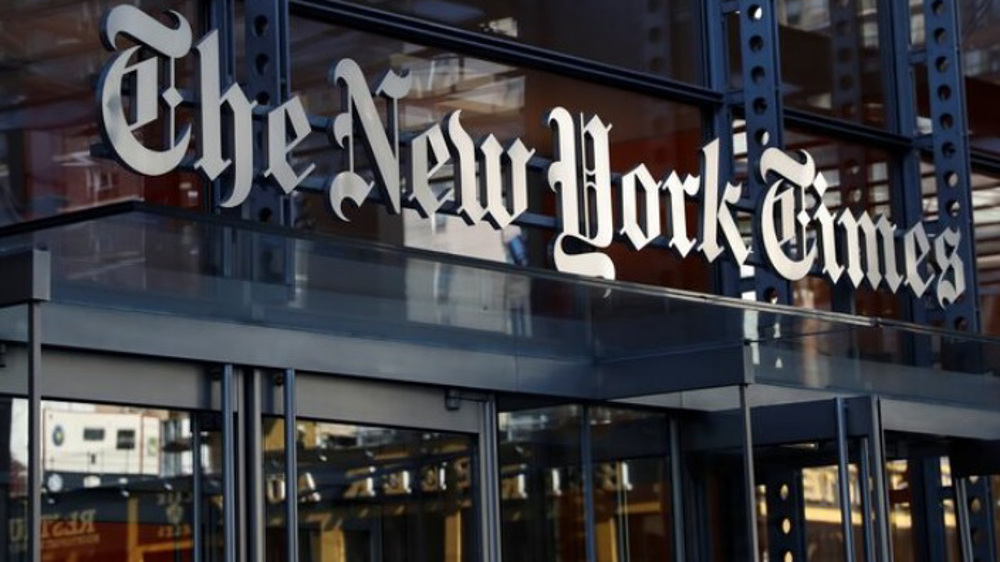
Hamas denounces NYT distortion of Marzouk’s comments on Op Al-Aqsa Flood
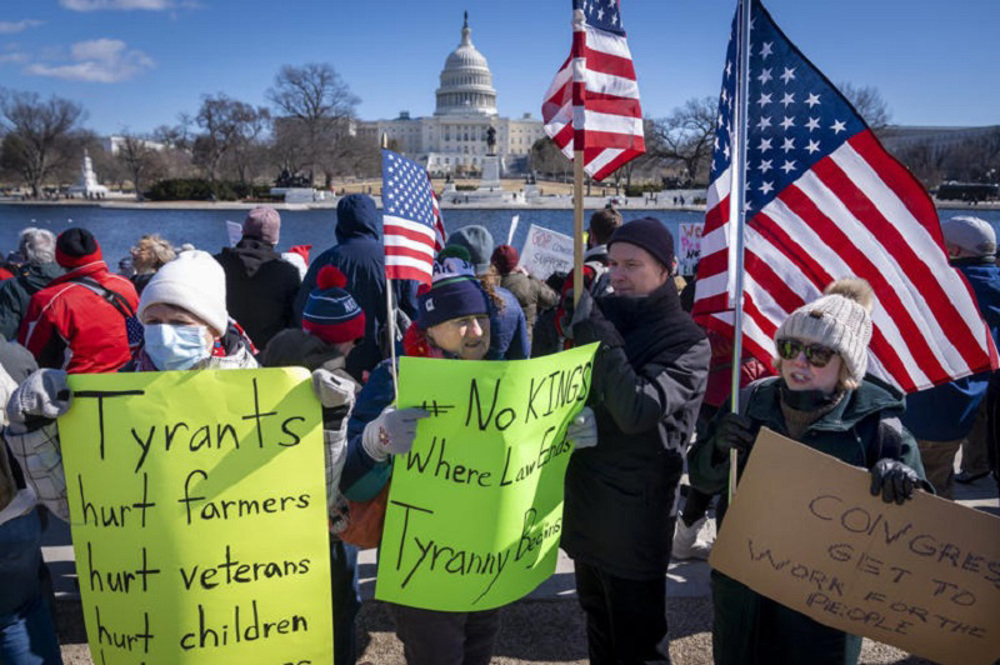
Thousands demonstrate on Presidents’ Day to call Trump 'A Tyrant'
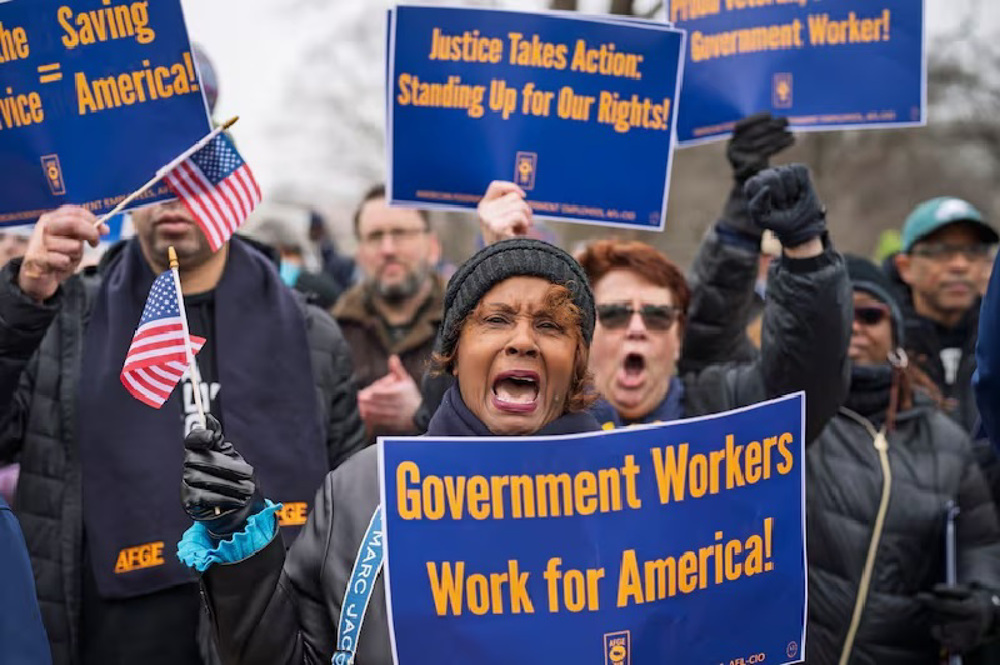
US Federal workers protest Trump workforce cuts
VIDEO | Gazans striving to survive with bare hands
'Shocking attack on free expression': Canadian politician slams arrest of pro-Palestine activist
West Bank Palestinians fear Gaza style destruction as Israel escalates raids
Hamas: Ibrahimi Mosque massacre testament to Israel’s criminal policy
Trump eyes Ukrainian rare earth minerals in exchange for military support to Kiev
Six Gaza children, including newborn girl, die of cold weather as Israel blocks aid
Iran rules out nuclear talks with US amid ‘maximum pressure’ campaign
Israeli tanks roll into West Bank first time in 20 years as prelude to forcible annexation


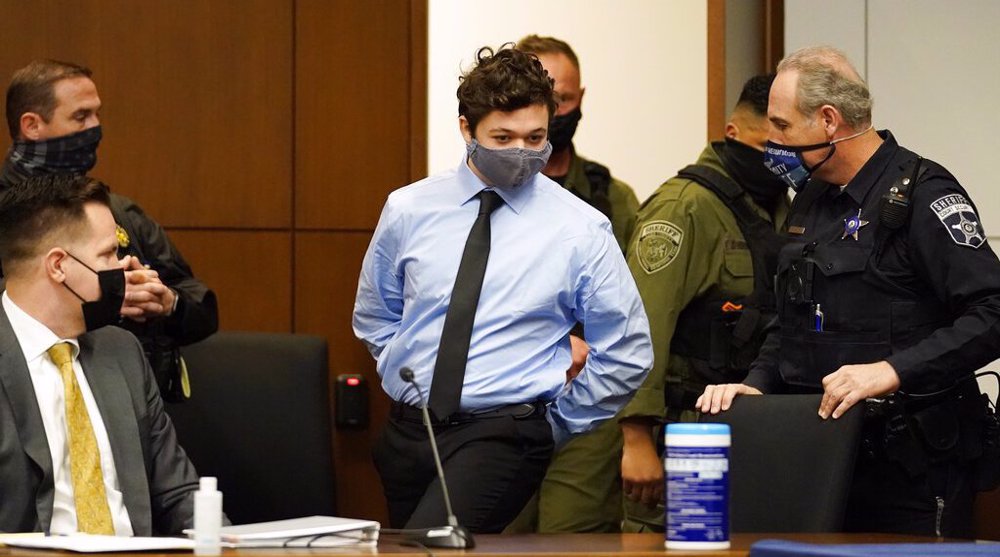
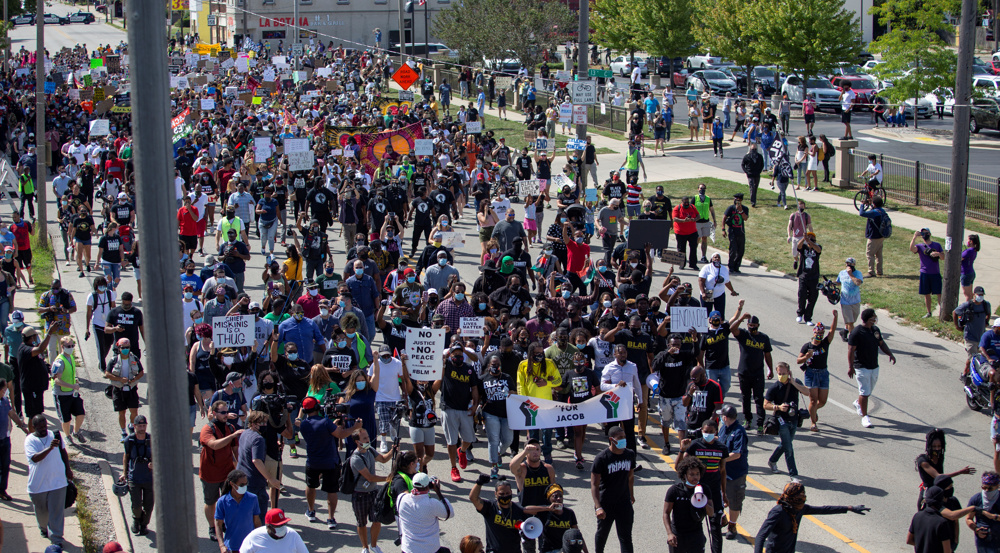
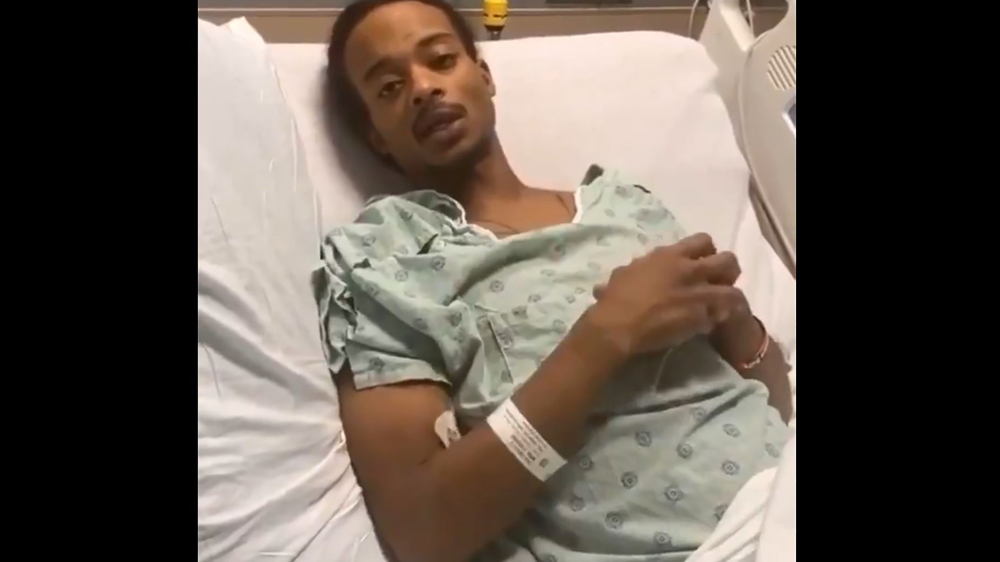
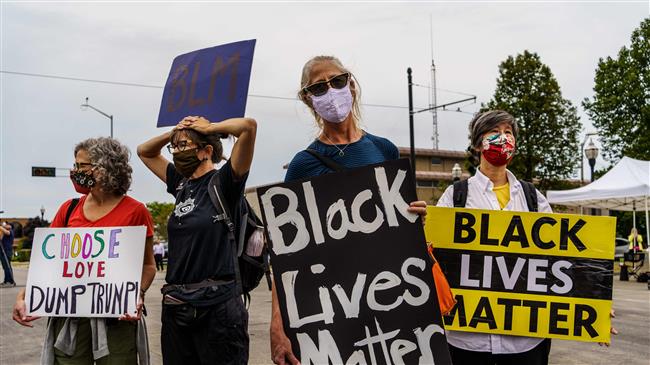



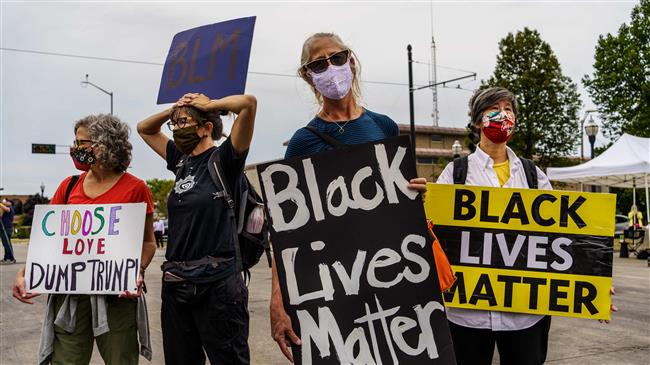
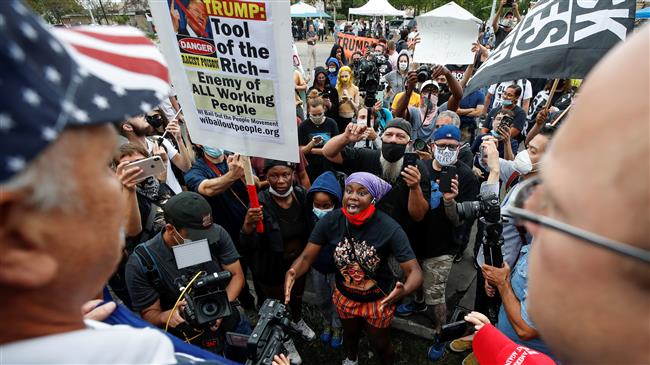
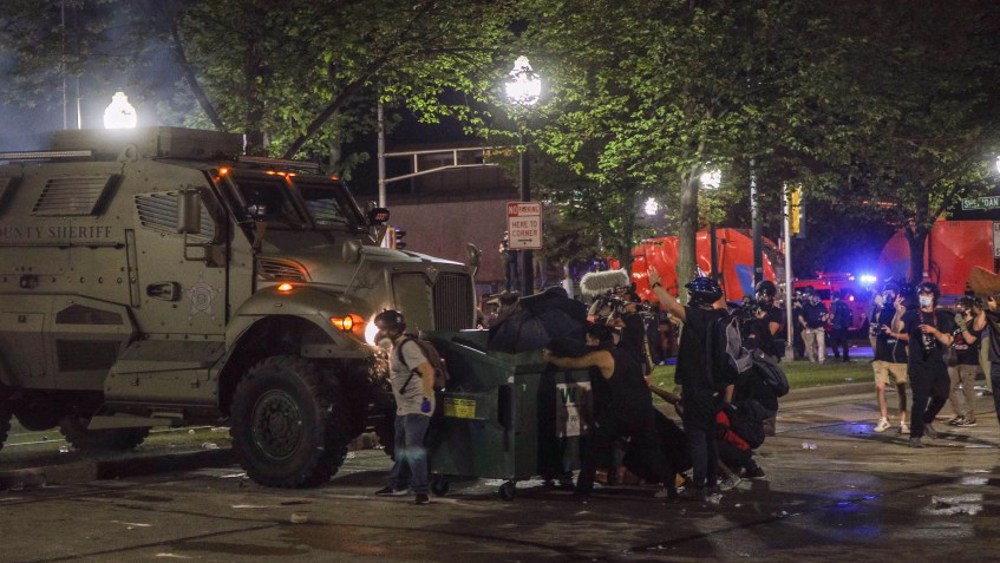
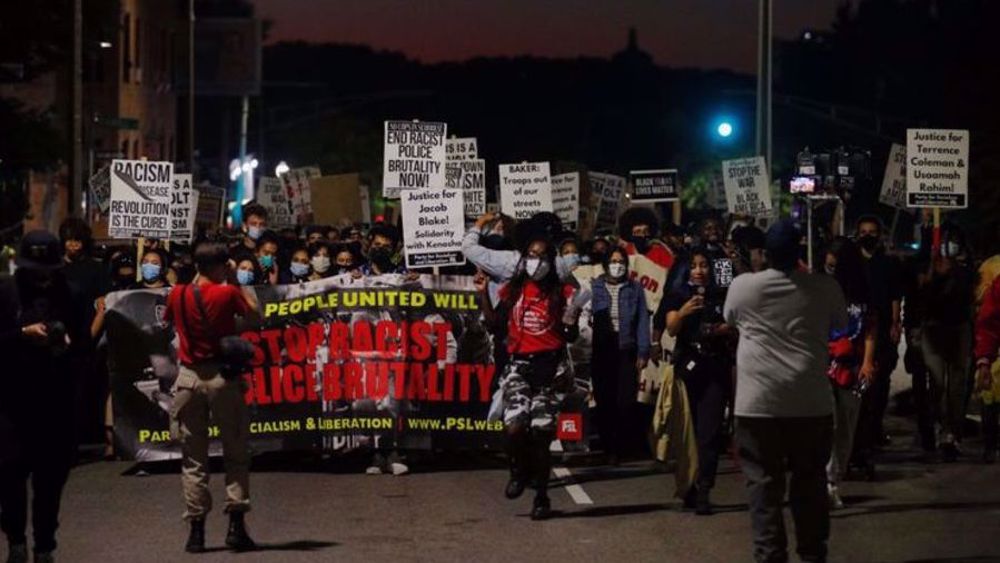
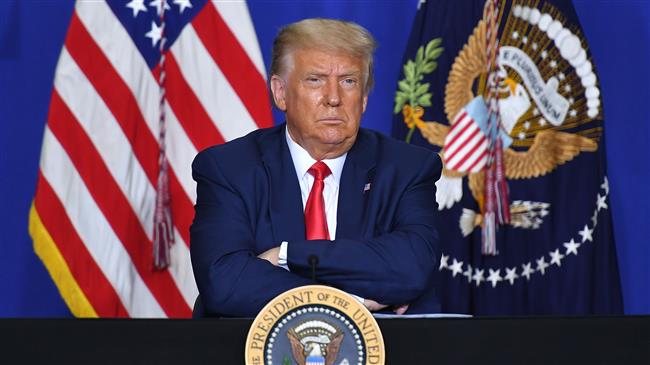

 This makes it easy to access the Press TV website
This makes it easy to access the Press TV website